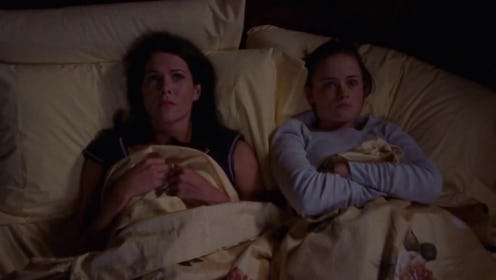Life
Here’s Why You May Be More Affected By Sleep Deprivation Than Others, According To A Study

Everyone has that one friend who can stay up all night, then somehow emerge completely unaffected the next morning. Meanwhile if you head to bed after 10 p.m., you need to hit the snooze button at least three times before actually getting out of bed. Then, even after you awaken, your brain is foggy for hours. It is anything but fair. But, as it turns out, there appears to be a scientific reason for this. Some people can handle sleep deprivation better than others, according to new research — and it turns out, the ease with which you handle sleep deprivation can be traced to a component of your genetic makeup called microRNAs.
Researchers from the University of Pennsylvania's Perelman School of Medicine published a study on Sunday, June 3 that details precisely how sleep deprivation affects microRNAs in a person's blood. According to Science Daily, it is the first report of its kind to reveal microRNAs are changed by total sleep deprivation for 39 consecutive hours.
Per the journal, Nature, microRNAs are "small, non–coding RNAs found in plants and animals. They regulate gene expression by binding to complementary sequences within target mRNAs. The mammalian genome encodes hundreds of miRNAs that collectively affect the expression of about one–third of all genes." So, even if you have not heard of them before now, countless miRNAs have been at work in your body for as long as you have been alive.
During the study conducted by scientists at UPenn, 32 adults participated in a five day-long experiment. First, participants were given two, eight-hour baseline nights of sleep (these acted as the control). Then, they participated in a period of total sleep deprivation (TSD). During this portion of the experiment, participants were prevented from getting any sleep for 39 consecutive hours. Finally, participants were given two nights of sleep to recover, each lasting eight to ten hours — the standard recommended time for a healthy night of sleep.
After the sleeping portion of the study was completed, participants underwent tests to measure the speed and accuracy with which the brain performs cognitive tests. Exercises to test attention and memory were administered, and samples of the participants blood were taken at six different time points. MiRNAs from plasma were also analyzed at multiple points in time.
Compared to their status before the study took place, ten miRNAs showed observable changes in their expression level in the subjects who experienced total sleep deprivation alone, compared to 18 miRNAs with expression level changes in the subjects who experienced both total sleep deprivation and psychological stress. Further, the miRNA blood sample taken before the study began was able to determine 14 miRNAs reliably predicted behavioral attention performance during total sleep deprivation, seven miRNAs reliably predicted cognitive performance during total sleep deprivation, and ten miRNAs reliably predicted memory performance.
"These findings show for the first time that miRNAs can track responses to total sleep deprivation and its detrimental combination with psychological stress and predict robust individual differences in various types of cognitive performance," explained Dr. Namni Goel, an associate professor of Psychology and senior author of the paper. "As such," she continued, "miRNAs are viable biomarkers of sleep deprivation, psychological stress, and cognitive vulnerability in humans and can be used to identify individuals ahead of time who are in need of countermeasures or interventions such as caffeine or naps to mitigate or prevent impairments associated with insufficient sleep."
The scientists behind the study hope the results can be used to help identify those with the highest risk for the negative effects of sleep deprivation. The ability to identify such could allow medical professionals to determine which patients should receive medical intervention to prevent the effects. The groundbreaking results will be presented at the Annual Meeting of the Associated Professional Sleep Societies this upcoming week.
So next time you have a particularly rough time bouncing back from a night out, consider the possibility of a direct connection to your genes. But, also try to get a little more sleep — only good things can come from that.